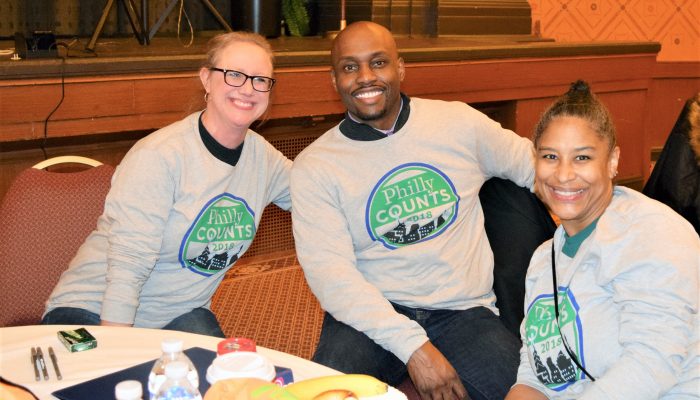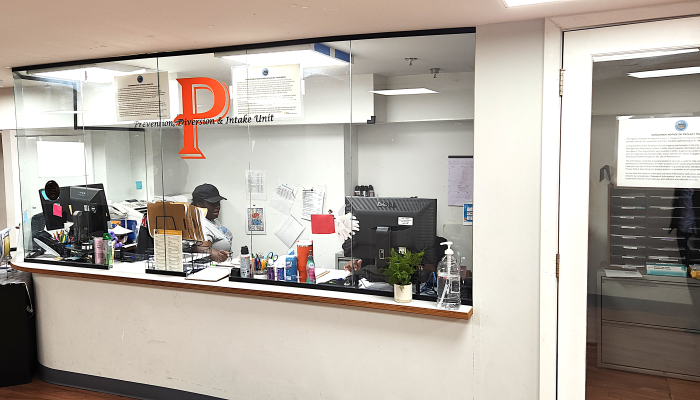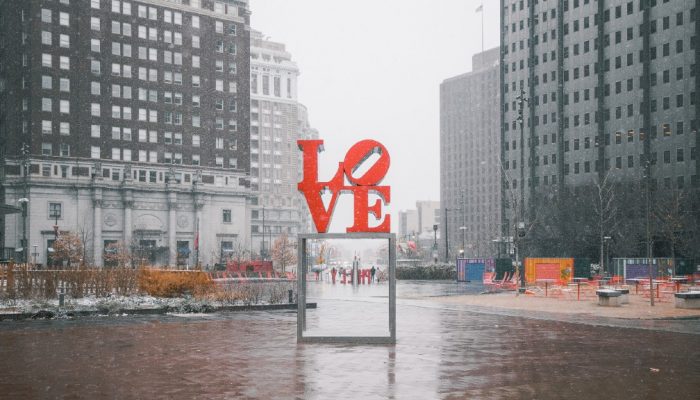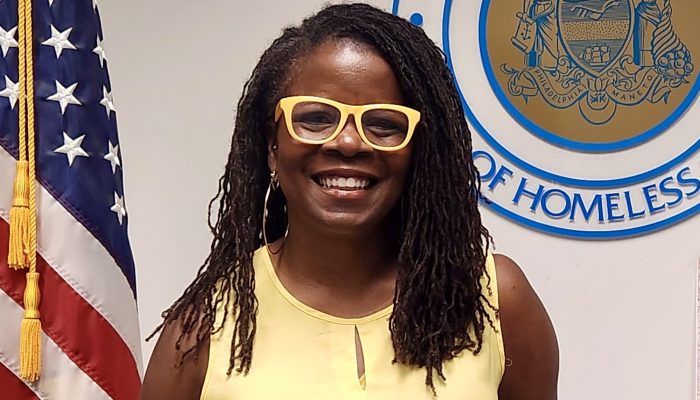The Office of Homeless Services (OHS) has an army of people going the extra mile every day to help others. Their work isn’t easy, but their commitment to helping people is strong.
Along various career tracks and across several different divisions, departments, and sites, nearly 200 Philadelphians serve their communities by working at OHS. One of those tracks includes social work.
So, we talked about their days, their experiences, and their insights with three trained social workers who have made careers here at OHS: Tojuana Conway, a Social Work Services Trainee; Ron Rubio, a Social Work Supervisor who goes by his last name; and, Roberta Cancellier, Deputy Director of Housing Services.
Rubio and Tojuana work at Appletree Family Center, one of the agency’s intake sites. Roberta works in the administrative offices at the Municipal Services Building.
Why did you choose to be a social worker with the City of Philadelphia?
Rubio: As part of Temple’s internship program, I was with the City’s Department of Human Services. I wanted a challenge at the time, so I sought out something I didn’t know much about at first. I quickly knew that government was something I wanted to do, so as soon as I finished school, I applied. Plus, Philadelphia is home. My family migrated here decades ago, and I grew up here. Why not make a difference in the place I call home? Since the Spanish-speaking population of the city has grown, I also thought I could offer my own experience and skills to make a difference.
Roberta: It’s hard to say. But I can say that looking back, Philadelphia chose me!
Tojuana: My family has a long history of serving Philadelphia. My father headed up a boys and girls club in South Philly to help decrease gang violence near the old MLK projects at 12th and Fitzwater in the late 1960s and early 1970s. He also had an after-school program. My mother spent decades with the City before she retired. She was with the Office of Homeless Services back whe nit was called “Relocation Services” and stationed at Broad and Fitzwater! And I have siblings working in the field or who have retired. I guess you can say it’s “in the blood!”
What does a social worker do?
Rubio: We strive to help our clients when they are in their most vulnerable state of mind. On a daily basis here at Appletree, we meet them when they’re in a housing crisis. We listen with empathy and try our best to assist with what services we have at our disposal. We can’t solve all of our clients’ problems but we can help them get back on their feet or back on track where the road or system has taken them off track.
Tojuana: We help people solve problems in their everyday lives. Here at OHS, we specifically provide services to men, women, children, and people living with disabilities who are currently experiencing homelessness or facing imminent homelessness.
Roberta: It’s a lot! Social workers directly help and counsel people with problems, create and administer programs and budgets, and pursue organizing and systems change.
What’s a typical day like?
Rubio: We don’t have a typical day, especially as our society’s issues have become more and more complex. Typically, we meet with clients from all walks of life, though.
Roberta: Most days, there are three things I’m working with: people by way of supporting staff and providers to offer person-centered, trauma informed services to empower people to end their houses crises; processes like workflow, contracts, and housing; and, performance and looking at data that tells us how we’re doing and how we can improve.
Tojuana: A typical day is atypical! We’re helping people who are in distress or experiencing trauma. Every case is different. You never know what you’re going to get, so you have to be very flexible.
Helping people with a history of trauma can itself be stressful. What do you do to combat burnout or secondary trauma?
Rubio: There’s no real secret to that, but it’s important to actively practice getting your mind off of your work. I try to spend time with my friends. Also watching my daughters grow, remembering that after work at the end of the day, all I have is them and my wife. It helps.
Roberta: For me it’s a positive outlook, prayer, friends, and overall sense of gratitude. My dad embraces the power of positive thinking and raised us to both set high goals as well as believe in ourselves. My mom drew a lot of strength from her faith. I’m so fortunate for the combination of qualities they instilled in me.
Tojuana: Time with family and friends! We just saw the new play about the Temptations in New York.
Tell us about a rewarding experience you’ve had as a social worker.
Rubio: I once helped a family get back to New York after they were stranded in Philadelphia. They had spent all of their funds coming to Philadelphia to bury a relative who just passed. They were on a fixed income. We were able to work with them and find ways to help them get back home to New York. About two weeks later, I got a thank you card mailed to our office telling us what a marvelous job we did in helping them get back home! Who would’ve thought?
Roberta: Recently, I got to speak at a masters of social work class at Temple about the ethical challenges in our work. The students were in field placements and already making a huge impact. Their engagement, and their hope, was inspiring to me. A real recharge.
Tojuana: It’s hard to pinpoint one experience since there are so many. I would say whenever I felt the most impact. Sometimes, that means initiating new programs and other times it means wrapping Christmas gifts for families experiencing homelessness.
What’s the best thing about Philadelphia?
Rubio: The food!
Roberta: Our gritty nature! But also the cheesesteaks.
Tojuana: The neighborhoods! Living in the suburbs before gave me an appreciation for our neighborhoods, our corner stores. People act like they know you.




